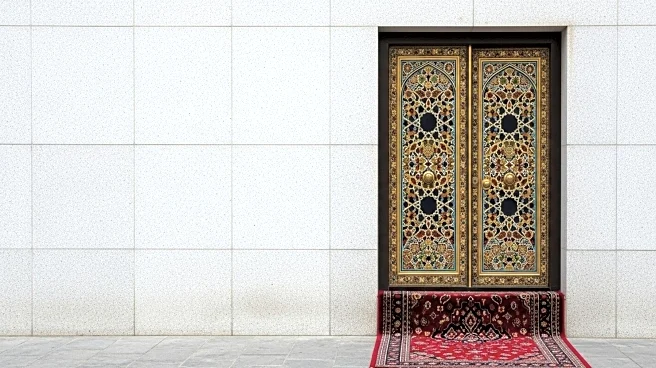What's Happening?
Australia has expelled Iran's ambassador following accusations that Iran directed anti-Semitic attacks in Sydney and Melbourne. Prime Minister Anthony Albanese announced the expulsion and plans to designate Iran's Revolutionary Guard Corps (IRGC) as a terrorist organization. The attacks involved arson at Jewish sites, causing significant damage but no casualties. The Australian government has also suspended operations at its embassy in Tehran, relocating diplomats to a third country.
Why It's Important?
This diplomatic move marks a significant escalation in Australia's response to alleged foreign interference and anti-Semitic activities. By designating the IRGC as a terrorist organization, Australia is taking a firm stance against perceived threats to its social cohesion and security. The expulsion of the Iranian envoy could strain diplomatic relations and impact Australia's foreign policy in the Middle East. The decision reflects Australia's commitment to protecting its Jewish community and maintaining national security.
What's Next?
Australia's actions may lead to further diplomatic tensions with Iran, potentially affecting trade and international relations. The designation of the IRGC as a terrorist organization could result in increased scrutiny and sanctions against Iranian entities. Australia may also seek to strengthen alliances with other nations concerned about Iran's activities. The situation could prompt Iran to respond diplomatically or through other means, influencing regional dynamics.
Beyond the Headlines
The expulsion of the Iranian envoy and the designation of the IRGC as a terrorist organization highlight the complexities of international diplomacy and the challenges of addressing foreign interference. This development may influence global perceptions of Iran and impact its diplomatic relations with other countries. The situation underscores the importance of intelligence and security measures in protecting national interests and maintaining social harmony.










